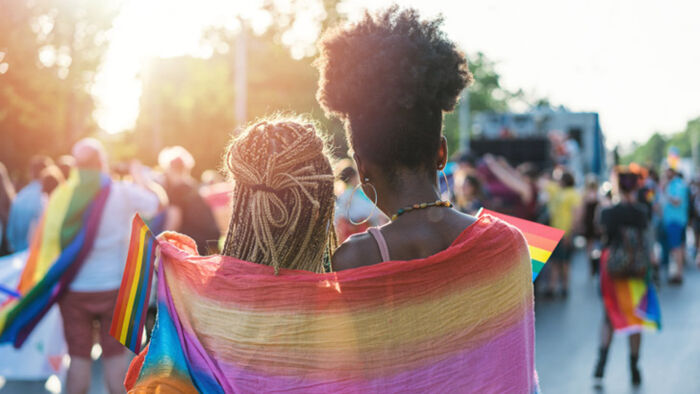LGBTI Aussies more financially stressed as costs rise
By Eliot Hastie
LGBTI+ Aussies are more likely to feel the effect of rising costs of living, according to a new study.
The research by YouGov found that 94% of queer people surveyed were feeling the strain of financial stress, compared to 85% of the heterosexual community.
The research, which polled more than 1000 Australians over 18, of whom 11% identified as being part of the LGBTI+ community, was released last week ahead of WorldPride in Sydney.
People who identify as lesbian, gay, bisexual, transgender or intersex were more likely to believe money is difficult to earn, and that it is a stressful topic to discuss.
Jessica Brady, the founder of financial literacy platform The Greenhouse, told Money that LGBTI+ people had a higher cost of living and were more financially vulnerable than the wider community.
"They must do a lot more to survive," she says.
"The LGBTI+ community is twice as likely to have to sell an asset, go into a financial hardship arrangement or move out of their homes.
"It's hard to speak for a community, but from my observations, LGBTI+ youth often leave the places they grow up and move somewhere they feel safe.
"That tends to be in the heart of cities which are expensive."
Financial adviser Glen Hare, founder of Fox and Hare and treasurer of advocacy group Wear It Purple, says many who identify as LGBTI+ come to receive financial advice later in life as they typically spent their 20s finding themselves and their community.
"We have seen among our rainbow clients that even those on quite good salaries feel less secure in their overall financial world than others," he says.
"A lot in the community didn't have the best childhoods or grew up with insecurities due to their sexuality. They typically spend their early adult years finding themselves which can quickly become quite expensive."
Max, a 28-year-old gay man living in Sydney, moved to an inner-city suburb with high rent prices to make friends in the queer community.
"I moved to Darlinghurst to be with a community that supported me and let me live a fun lifestyle. I have looked to move further away but I balance it up between being near the community and saving," he says.
"To live the life I want to live, and where I want to live it, I am left with very little at the end of each month."
The research also shows that people who identify as LGBTI+ are less comfortable having conversations about money with their partner than others, and as a result, are more likely to have disagreements about money.
"A lot of it comes down to money habits that are formed at a young age. Even this generation coming through has been taught that men must work and earn money and women can step to the side, this creates shame and friction which is only doubled for same-sex relationships," says Brady.
Lachlan Sturt, a public affairs worker in Melbourne, said that he and his partner of seven years had worked hard to discuss money and get to a point where they were comfortable with their finances.
"We used to contribute equally to joint expenses but we were at different stages of life so there were drawbacks and there was a power imbalance," he says. "We eventually sat down and had a holistic look at our finances, but it took a lot of effort and was very emotionally charged."
Hare encourages anyone experiencing financial stress to seek out free financial information from resources such as Moneysmart.gov.au or the National Debt Helpline.
"It starts with recognising your position and then seeking help, particularly if you have racked up personal debt in those early years," he says.
While there is no dedicated financial portal for the LGBTI+ community, support is also available from QLife and Beyond Blue.
Need to talk to someone?
Beyond Blue: 1300 22 4636
National Debt Helpline: 1800 007 007
QLife: 1800 184 527
Get stories like this in our newsletters.



